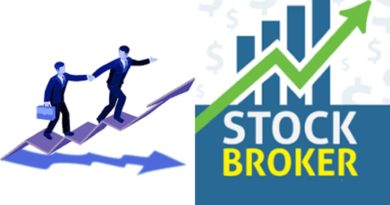Algo Trading in India- Definition | Strategies | Pros & Cons
Algo Trading In India: In today’s competitive and cost-conscious trading environment, technology has always played a major role. The scenario of the Indian stock market is getting changes almost every decade. The major revolution in the Indian trading system took place after the establishment of the Nation Stock Exchange in 1992.
In India until 2000, online trading was a dream for investors. It was in the last decade, rule-based trading was introduced in India. This system is also known as Algo trading/ Algorithmic trading/ automated trading/ black-box trading which has gained popularity now in India.
Algo trading in India is popular among institutional investors and ultra-high-net-worth investors. It is mostly used in investment banks, hedge funds, and UHNI client accounts. As of now, in India retail investors are not allowed to trade in full Algo-based trading systems.
However, in India, some brokerage firms offer Algo trading facilities to retail clients as a product with the one-touch facility. A fully automated or system-based trading facility is only allowed to registered Authorised Person. In India, almost 50-60% of turnover is from Algo Trading. It is usually carried out using software provided by the broker with live data.
Definition of Algo Trading
Algo or Algorithmic trading is a rule-based electronic trading platform. It executes trades or orders after deciding on aspects of timing, price, or quantity of the order without any human intervention. Any trades that are carried out using algorithms are known as algorithmic trading. Nowadays Algorithms have become a must for broking firms for volume-based business and to retain high-volume clientele.
In common words, Algorithm trading is a way through which investors’ trading strategy gets coded for a system-based execution strategy. It is a computer-directed trading process which not only cuts the transaction cost but also allows fund managers to take control of their own trading processes.
Algorithm trading utilizes very advanced mathematical models for making transaction decisions in the financial markets. The algorithm rules are built in such a way that it causes very less impact on the stock price at the time of order execution. Normally a large quantity of shares is purchased by dividing large lots into smaller lot size and allowing those orders to execute with minimum slippage.
Who uses Algo Trading in India?
In India Algo Trading craze is seen in the last decade, and even retail investors are eager to get experience in it. Recently SEBI the market regulator issued the framework for Algo trading in India.
In India only registered authorized persons, and large institutional investors use Algo trading. The main uses of the Algo trading facility are due to a large number of shares they transact on a daily basis and it is possible only through system-based trading. Complex algorithms allow these investors to obtain the best possible price without slippages or affecting the stock price and cost.
As per Indian market experts, the use of Algo trading is likely to grow rapidly in the near future as people learn more about technical analysis and charts. In abroad, countries like the US, the UK almost 70-80% of trades are through automated or Algo trading. So in India also rule-based and system-based trading cannot be ignored.
The difference between Automated, Algorithmic, and HFT Trading
We will understand the difference between the above three in the below definitions
Automated Trading: It means completely making the order process in an automatic manner, order generation from the chart, submission, and order execution. It is a part of Algo Trading where their execution of orders is happening in an automatic manner.
Algo/Algorithmic Trading: It refers to the trade execution strategies that are used to buy and sell a large number of assets. It is used mainly to minimize the cost of the transaction under certain risk and timing constraints. This is done by slicing orders and executing the order with minimum slippage without affecting the market price.
You can better understand the Algorithm trading from this example, It is like a GPS navigation system in your car. You tell the car your destination, and the GPS picks the route. The car generally doesn’t drive for you, and it doesn’t replace your decision of where to drive. Similarly, the Algorithmic trading system pre-decide which stocks to buy or sell and the actual execution of an order.
HFT-High Frequency Trading (HFT) is a general term referring to buying and selling financial products at extremely high speed which is not possible manually. Computers can identify market patterns and does the transaction on these products in a matter of milliseconds based on algorithms. This can only be possible if the client’s server is located at Colocation ( NSE data center)
High-Frequency Trading normally has artificial intelligence capabilities to learn and optimize the trading algorithm. Speed plays a key factor for successful trading in HFT trading. Traders having higher speeds can become more profitable than the lower ones.

Algo Trading: Pros and Cons
Algo trading has become a common feature, particularly in the US and Uk. Outside India, it has become such a common feature that traders can’t think of anything else other than Algos. These mathematical models analyze every quote and trade in the stock market, identify liquidity opportunities and turn the information into intelligent trading decisions. The pros are as follows.
Eliminate emotions:
The most important pro of Algo trading is it eliminates human emotions. Algorithm trading is rule-based trading and once rules are defined and strategies are made, executions are done by software. There is no question of deviation from initial strategies everything works in an automatic process. As there is less human intervention hence it almost eliminates human emotions.
Discipline trading:
In manual trading, we have seen traders often change their trading strategies based on market conditions and divert from their original ones. Algo trading deals in any market condition and helps traders to remain consistent and disciplined in spite of the ups and downs. It helps traders to stick with their original strategy and not derailed by irrational fears of loss or the impact of macroeconomic factors.
Trading speed:
Another advantage that algorithm trading has it executes trades in the fastest way. Algorithms actually analyze various parameters and technical indicators as per the strategy demands at no time and execute the trade immediately. The speed of analysis and execution is very important for algorithmic trading to avoid slippages.
Can Backtest the Strategy:
Algorithim Trading allows testing the strategy on backdated data. This helps traders to know in advance the accuracy of their strategy. New traders always test their strategy first in the backtested mode and then trade on live. This even helps to prevent losses if there is any flaw in the strategy.
Minimum error and cost of transaction:
Except for monitoring the process, there is no human intervention in Algo-based trading. As there is no human intervention there is less chance of getting errors in Algo-based trading. It is also cost-effective because of the speedy execution of trade and less manpower requirement.
Other than the above pros, there are few more advantages like Algorithm trading can be more accurate once backtesting was done. Traders can diversify trading in other segments also. It can also increase market volume.
Pros and Cons are just like the two sides of the coin. When pros are there in Algorithm Trading, Cons will definitely be there. So let’s check the Cons of Algorithmic Trading
Technically Sound:
Investors or traders should be technically sound to develop the Algorithm strategy. One can also build the strategy through developers but understanding technicality is important. Without technical knowledge, it becomes very difficult to run the Algo trading software on a daily basis. I think this is one of the biggest disadvantages of Algo trading.
Startup cost-
Due to high start-up cost sometimes traders takes back step in Algo Trading. To start with a trader need to bear server cost, data center cost, API charges, Developer charges, etc. And if the Algo demands co-location then the start-up total cost becomes double. This is another con for Algorithmic trading.
Restriction by regulators:
This is another con, the regulatory body of different countries imposed various restrictions in Algorithm trading. In India, SEBI has not allowed retail clients to take part in Algo trading.
All strategies may not work:
After the development of the Algo strategy, it was tested on historical data. Even after getting successful results in the test environment, investors or traders may not get the same result live. In the live environment, traders’ strategies may not work.
Constant monitoring:
We all know that Algo trading is fully automatic and no manual intervention is required. But it is also true that it requires constant monitoring so that the Algo strategy does not stop in the data center.
Algo Trading in India
In India, SEBI has allowed Algo/Algorithmic trading to Institutional Investors with the introduction of Direct Market Access ( DMA). At present in India, NSE and MCX are allowed for Algo Trading, BSE will also allow it shortly. It was basically introduced in the Indian market for faster communication with exchanges so that it can increase the speed of trading and volumes in a fraction of a second.
SEBI has allowed Foreign Institutional Investors (FIIs) to trade in Algorithmic Trading from February 9th. This has not only increased the volume of Algo Trading but also increased the overall volume of the National stock exchange. Again in June 2010, SEBI has introduced co-location, where FIIs or Institutional traders can put their servers for high-frequency trading (HFT) to get more speed.
In terms of adoption, Globally almost 70-80% of trades are happening through Algos. It crossed the halfway mark, nowadays almost 50-60% of trades are happening through Algo Trading in India. In the future, the adoption of Algorithmic Trading will depend on how the SEBI, the Indian market regulator framework the policies.

Algo Trading Strategies
For doing Algo Trading you need a strategy, the strategy can be predefined or some trading logic. If you have any logic for trading in the market, it can be technically coded and run on the Algo platform.
You can also run Algos on pre-defined strategies like
- Trend following strategy based on moving average
- Arbitrage Strategy- Stock to Future, Index future to another Index future
- Volume weighted average price (VWAP)
- Time-weighted average price (TWAP)
- Mathematical model-based strategies
- Trading Range (mean reversion )
There are many pre-defined strategies, you can also make a strategy based on this to trade in Algos.
You can select Algo Trading Technical person here to code your strategies at the lowest cost
Algo Trading Course
There are both free as well as paid courses available in the market for Algorithm Trading. If you have good market and technical analysis knowledge you can build your own strategies in AFL languages for Amibroker based model which is a basic automated trading model.
For Algorithm and HFT based trading there are many paid courses available in the market, you can search in google for the list. Normally, these courses are professional having a bit of software knowledge and market knowledge. The duration for these courses are between 3 months to 1 year and they charge around 50K to 2L to teach you Algorithm Trading.
Algo Trading companies in India
To start algorithmic trading you need a Stock Broker, an Algo Trading platform, and most important Algo product approval. In India all discount brokers are giving approved automated trading platforms, these are the basic semi-automatic Algo models. You can contact this discount broker for full Algo/Automated trading accounts
You can get a few third parties Algo Trading Platforms readily available in India like Symphony, Greeksoft, Deltasoft, Fox Trader, etc. These software companies approved their Algo trading platform from exchanges. These companies are also tied up with a few brokers to connect the order execution part. You can build up your strategy easily and do Algo trading once you registered with the stockbroker.
There are also a few broking companies in India offering customized Algo-based platforms through Application Program Interface ( API). You can take API from the stockbroker and make your own Algo product. In this case, you need to take approval from the exchanges and sit for mock testing.
The broking companies take care of the approval part if you are making your own product. You can also keep your platform on the cloud or on the server at the brokers’ data center. If you are doing HFT trading and need co-location you can get it through your stockbroker. You can contact us for any kind of Algo Trading help.
Conclusion:
Algorithmic Trading is globally recognized as the fastest and most cost-effective trading platform. It has got many advantages like cost-effectiveness, no human intervention, high-speed trading, eliminates emotions while trading, etc. Similarly, there are some disadvantages also which can be ignored.
In India, not all stockbrokers are offering the Algorithmic Trading facility. In this article, we have explained the details of Algo Trading in India. We have explained to you its definition, pros, and cons, its uses, strategies, Algorithmic trading companies, its courses available. etc. But still, if you need any kind of support in starting Algo Trading you can drop us an email. We will love to solve your queries anything regarding Algo/Algorithmic Trading.
If you like the post please share it with others
You may also like to read, PSU Bank Merger: Know which stocks to buy now
Nifty50 Stocks list | Index | Share price
Your Stock Broker will never say these Hidden Charges.
Happy Investing!!
Editor’s Desk




